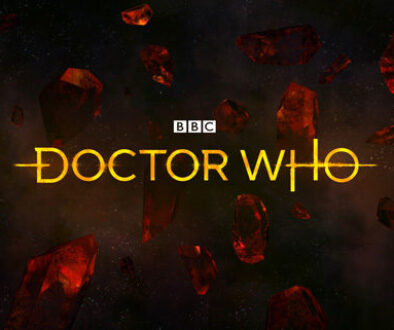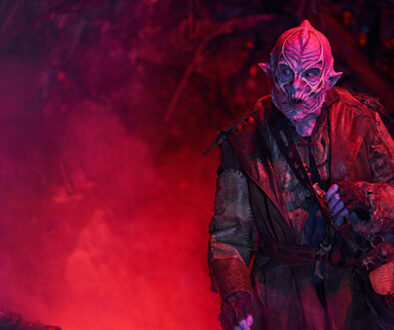2nd Opinion: “The Battle of Ranskoor Av Kolos”
Connor Johnston & Gustaff Behr give their takes on the tenth episode of Series 11.
Connor’s View – Out For Revenge

Through Whittaker’s first series we’ve seen stories motivated by a mix of scenarios and theories. While “Rosa”, “Demons of the Punjab”, “Kerblam!” and “The Witchfinders” seemed primarily informed by their environments, episodes like “The Woman Who Fell to Earth”, “The Ghost Monument”, “Arachnids in the UK” and “It Takes You Away” read more as stories written around concepts – that of heroism, survival, home and loneliness, respectfully. “Ranskoor Av Kolos” attempts, but ultimately fails in being both type of episodes – offering a strong basis for discussion and character development but at the cost of its incidental narrative.
As an episode inspired and motivated by the concept of revenge, the finale is a rewarding and thought-provoking exploration into not just the minds and ideologies of our characters, but the journeys they’ve overtaken throughout the last 10 episodes.
Revenge in the context of morality and justice is something Doctor Who has toyed with before, but not quite to the level of significance “The Battle of Ranskoor Av Kolos” attempts. We’re presented with three main entry points to this discussion; that of T’zim Sha and his spiteful plot to conquer and destroy civilisations that have stood in the way of his rise to power, that of the Doctor and her unwavering belief that revenge cannot and should not motivate any action (especially murder) and finally that of Graham who begins the episode in viewing revenge through the guise of pain, grief and retributive justice.
By the episode’s conclusion we’re left with a clear message: that revenge corrupts, it distorts our morality and leads only to defeat. Graham’s strength to fight this urge for retaliation and instead act through grace is not only a fitting development in his own battle with grief, but also sets a stunning example of how travelling with the Doctor has impacted his everyday actions.
However, as an episode informed by its environment and face-value narrative it lacks the scale, power and hook of a series finale – though not for lack of trying. To its credit, the episode does set itself within a scenario informed by unique concepts and a complimentary atmosphere (specifically that of the Ux’s abilities) – so why in retrospect does the finale seem so empty? Partly because the script offers little time to develop the ideas it presents.
The planet being a source of constant manipulation and corruption is completely forgotten, the risk to earth is presented but at no point really seems real, and the Ux (who remain an impressive and well-realised concept) are deprived the opportunity for real conflict regarding their faith and actions that might have made them one of the most memorable additions to the series. While the episode’s discussions on revenge and the relationships we’ve followed all series reach a fulfilling conclusion – the episode’s structural narrative is left to fizzle out in the background.
I won’t lie, on my first viewing of “The Battle of Ranskoor Av Kolos,” I found it hard to separate my expectations (and initial disappointment) from an understanding and reception of what the episode tried to achieve. The stage it sets is not one whose size or perspective is one we’re used to in a Doctor Who finale, and although that does take a degree of acceptance – I really wasn’t able to even begin to engage with, and eventually enjoy, the episode we were presented with until I stopped trying to compare and compete it next to previous years. The episode isn’t a shock-drop-secrets-reveal finale because the series it concluded wasn’t one driven by a year-long mystery – but by the discussions and ideologies, its characters navigate through.
It may not quite reach the constant heights seen in the previous nine episodes, but it still makes a commendable effort of closing one of the most impressive and considered chapters in the show’s history – hopefully, the first of many with Chibnall and Whittaker at the helm.
Gustaff’s View – On the fence

Like most episodes this season, I am on the fence when it comes to “The Battle of Ranskoor Av Kolos”. On the one hand, it brings Graham’s story arc full circle by giving him the perfect opportunity to avenge the death of his wife. On the other hand, an evil alien targeting planets and compressing them into small balls that they keep on display? Wasn’t that the exact plot of The Pirate Planet?
I’ll admit I laughed really hard during the Graham/Doctor standoff. The Doctor’s arguments for why not to take revenge is laughable because Graham is completely in the right. Grace would’ve wanted to be alive, the TARDIS team did make a mistake not finishing off Tim Shaw and if you kick Graham out of the TARDIS because he is being pragmatic (yes it’s vengeance, but the two overlap here to his favour) that’s fine.
Graham not going through with his revenge is a bit of a letdown, but then again, trapping someone for all eternity in a box where they’ll take turns going mad and sane from isolation is a pretty neat consolation prize. My head canon says this was Graham’s true plan all along so he can enjoy Tim Shaw’s suffering to the max. Bradley Walsh has been the MVP this season. I didn’t know much about him prior to Series 11, but I am over the moon that he was chosen to be here. Much like Nardole, his character and his journey has been the source of much of my enjoyment this season.
Moving on to the Doctor, I have given the character an entire season, but this episode has convinced me beyond a shadow of a doubt that I do not like this particular incarnation of the Doctor. There was so much potential for Thirteen to go on a journey here, but it’s wasted completely. No one at any point in the story makes the connection that the Doctor indirectly caused this episode to happen by not killing Tim Shaw when she had the chance. There was a real opportunity for the Doctor to question her own morality. All throughout the season she keeps reiterating her strict No Kill policy.
Early on in this episode Thirteen is confronted with the unimaginably horrific consequences of leaving a previous enemy alive. This could’ve set up a story about the Doctor herself being seriously tempted to break that rule, which could work great as the finale to a series which had been pushing the preachy Doctor especially hard. But it just doesn’t happen. Her inaction and insistence on moral superiority and grandstanding allowed a predator to use the power of mighty earth bender gods to kill billions and billions of people. The Doctor proves this incarnation is a blatant hypocrite by calling Ryan out for using weapons but says it’s okay because she uses them to blow up inanimate objects like buildings. Loophole: Blow up the building…with your enemies inside it. Booyah!
There’s also the idea of whether to save your family or hand over something important to the villain, all while having no idea what it does, and having lost memories? Sounds interesting, but that part of the episode was easily resolved. A hat trick to the wasted potential of this episode: The mind-altering atmosphere of Ranskoor Av Kolos that is mentioned. Apart from briefly causing Paltraki to lose his memory it never really comes up in any meaningful way. The Doctor and Yaz make the seemingly momentous decision to give up their neural dampeners to subdue the Ux, but other than complaining of feeling groggy nothing comes of this, and they take back the dampeners soon after. It’s almost like this plot point came first in order to resolve the climax and then Chibnall built the rest of the episode around that.
Ryan and Yaz, once again draw the short end of the stick. Ryan however is partnered with Graham and the two’s comedic double act does wonders for both characters. Yaz on the other hand gets to babysit the other MVP of the episode Paltraki. Much like Alan Cumming, Mark Addy is a national treasure, so I knew I had nothing to worry about. His performance as the amnesiac captain, determined to save his crew and complete his mission resonated with me and was loads of fun to watch.
Tim Shaw is an alright villain. He made more of an impression on me here than he did in the season opener. I actually think an origins episode detailing his struggle over the 3407 years being the ruler of the Earth Kingdom would’ve gone over well with the fandom and help make his character feel more developed. Much like in “The Woman Who Fell to Earth”, Shaw is defeated very easily by Ryan and Graham which is disappointing. It seems that unlike DC’s Vandal Savage, Tim Shaw didn’t bother to use those 3,000 years of existence to become a master in every art form known to man.
I mentioned this at the start, but this story is basically The Pirate Planet, but a more serious version without the fun. I was late to the party, but as I watched the Legends of Tomorrow mid-season finale I realized what Doctor Who is lacking nowadays: FUN. It is one of the cornerstones of the show but it’s strangely missing from almost every episode. Fun is something that Chibnall should strive to include in Series 12. My advice: Focus less on historical and educational programming and inject a good dose of fun into the show. That’s what fans want. And isn’t that the promise you made when you took over as showrunner? Just sayin’.








